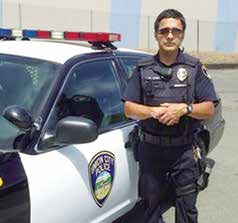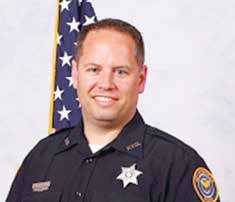
A 2013 survey that assessed peace officers’ attitudes toward college degrees confirmed what many have long believed: Law enforcement officers value education.
While departments may not mandate an undergraduate degree as a prerequisite for employment, 48% of respondents reported earning at least a bachelor’s degree. This is a 20% increase over 2010 results and scores substantially higher than the national percentage of all working professionals seeking additional education.
However, there was no mention in the survey of which degrees are most valued by LEOs. Of course, there’s the traditional criminal justice path, but higher education in less traditional subjects, such as public administration and organizational leadership, also supports career growth. These degrees teach valuable management skills and demonstrate capability for handling advanced responsibilities, making them an important asset for those looking to ascend to the upper ranks or improve their marketability.
Here’s a quick overview of a few public administration and leadership programs and how FOP members are using them to promote in their professions.
 Union Institute & University
Union Institute & University
Degree: Master of Science in Organizational Leadership
Course sampling: Organizational Development: Innovation, Change Management and Design Thinking; Leveraging Technology: Strategic Information, Communication and Collaboration Systems
Why choose it? The newly launched Master of Science in Organizational Leadership (MSOL) program is divided into three modules: Innovative Leadership, Networking Leadership and Analytical Leadership. Classes are geared toward building leadership skills within an organizational context as well as integrating students’ existing professional knowledge and experience.
Charles F. Piazza, Ph.D., special assistant to the president for strategic innovation and planning and MSOL program chair, says the degree is well suited for law enforcement professionals. “We’re trying to develop organizational leaders who can adapt with whatever is in front of them because the law enforcement field is going to keep changing,” he says.
 FOP member POV: “In our toolbelts, we carry guns, tasers, batons and radios, but you need other tools as well. You need the ability to write, speak and present in discussions.”
FOP member POV: “In our toolbelts, we carry guns, tasers, batons and radios, but you need other tools as well. You need the ability to write, speak and present in discussions.”
— Officer Amo Virk, Union City (Calif.) Police Department, FOP Lodge #7, 2014 graduate
Columbia Southern University
Degree: Master of Public Administration
Course sampling: Learning Strategies for Success; Quantitative Research Methods
Why choose it? Teaching college-level courses online to working professionals has always been the premise behind Columbia Southern University, a subsidiary of the Columbia Southern Education Group. Over the past 20 years, CSU has created a broad selection of programs, including an MPA designed for criminal justice professionals.
The coursework engages students in ethics, finance and budgeting, and strategic planning. “You may have an emphasis or specialization in criminal justice, but then you have all those other areas, and that gives you insight into how decisions are made by policymakers,” says David J. Thomas, Ph.D., LMHC, lead faculty graduate for the criminal justice program. “Also, this prepares you to do something other than law enforcement if you choose to. You’ll have the education that allows you to make that transition.”
 FOP member POV: “The police academy is going to teach you how to be a cop, but college courses get you geared up for supervisory positions. Once you make it past officer, you are an administrator, which is a businessperson. The public administration degree will behoove you much, much more.”
FOP member POV: “The police academy is going to teach you how to be a cop, but college courses get you geared up for supervisory positions. Once you make it past officer, you are an administrator, which is a businessperson. The public administration degree will behoove you much, much more.”
— Personnel Officer Lonnie Isom, Pensacola (Fla.) Police Department, FOP Lodge #71, current student
 Upper Iowa University
Upper Iowa University
Degree: Master of Public Administration
Course sampling: The Legislative Process; Urban Management
Why choose it? To reflect evolving political, administrative and security issues, Upper Iowa University recently expanded its MPA emphasis options. In addition to fire science and law enforcement, students now can choose government administration, nonprofit organizational management or emergency management and homeland security.
“We are committed to continuous improvement so we can provide maximum value to our students,” says Gerald Poppe, Ph.D., associate professor of public administration and MPA program coordinator at UIU’s Milwaukee Center.
 FOP member POV: “My favorite class is Case Studies in Public Administration. You get to see how leaders run their agencies, what has worked and what hasn’t.”
FOP member POV: “My favorite class is Case Studies in Public Administration. You get to see how leaders run their agencies, what has worked and what hasn’t.”
— Sheriff-Elect Brian VanVickle, Ogle County, Ill., FOP Lodge #127, 2014 graduate
Editor’s note: Click here for further insights from FOP members who have earned leadership and public administration degrees.
Read the full Fall 2014 FOP Journal issue.




